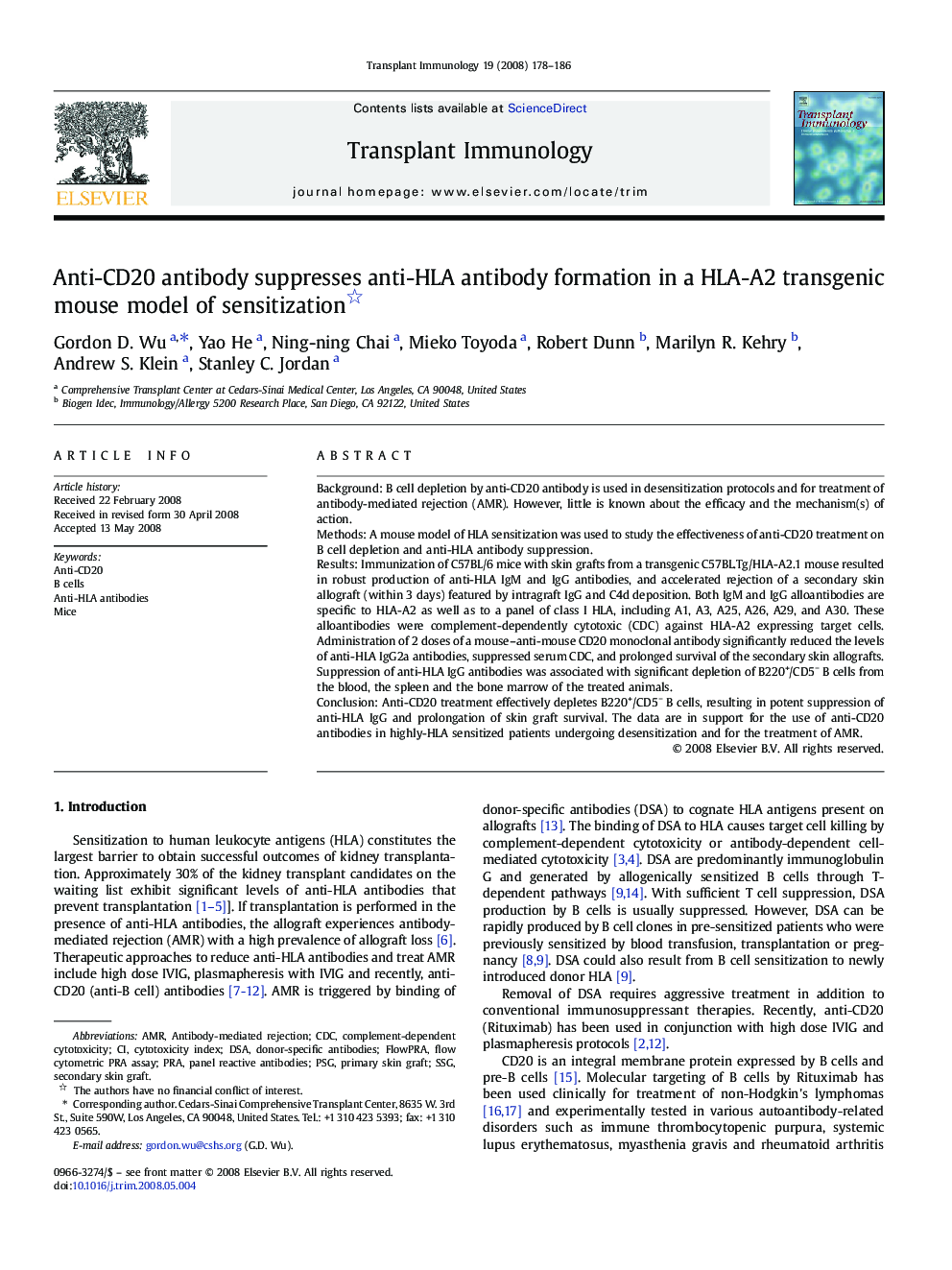| Article ID | Journal | Published Year | Pages | File Type |
|---|---|---|---|---|
| 3392572 | Transplant Immunology | 2008 | 9 Pages |
BackgroundB cell depletion by anti-CD20 antibody is used in desensitization protocols and for treatment of antibody-mediated rejection (AMR). However, little is known about the efficacy and the mechanism(s) of action.MethodsA mouse model of HLA sensitization was used to study the effectiveness of anti-CD20 treatment on B cell depletion and anti-HLA antibody suppression.ResultsImmunization of C57BL/6 mice with skin grafts from a transgenic C57BL.Tg/HLA-A2.1 mouse resulted in robust production of anti-HLA IgM and IgG antibodies, and accelerated rejection of a secondary skin allograft (within 3 days) featured by intragraft IgG and C4d deposition. Both IgM and IgG alloantibodies are specific to HLA-A2 as well as to a panel of class I HLA, including A1, A3, A25, A26, A29, and A30. These alloantibodies were complement-dependently cytotoxic (CDC) against HLA-A2 expressing target cells. Administration of 2 doses of a mouse–anti-mouse CD20 monoclonal antibody significantly reduced the levels of anti-HLA IgG2a antibodies, suppressed serum CDC, and prolonged survival of the secondary skin allografts. Suppression of anti-HLA IgG antibodies was associated with significant depletion of B220+/CD5− B cells from the blood, the spleen and the bone marrow of the treated animals.ConclusionAnti-CD20 treatment effectively depletes B220+/CD5− B cells, resulting in potent suppression of anti-HLA IgG and prolongation of skin graft survival. The data are in support for the use of anti-CD20 antibodies in highly-HLA sensitized patients undergoing desensitization and for the treatment of AMR.
